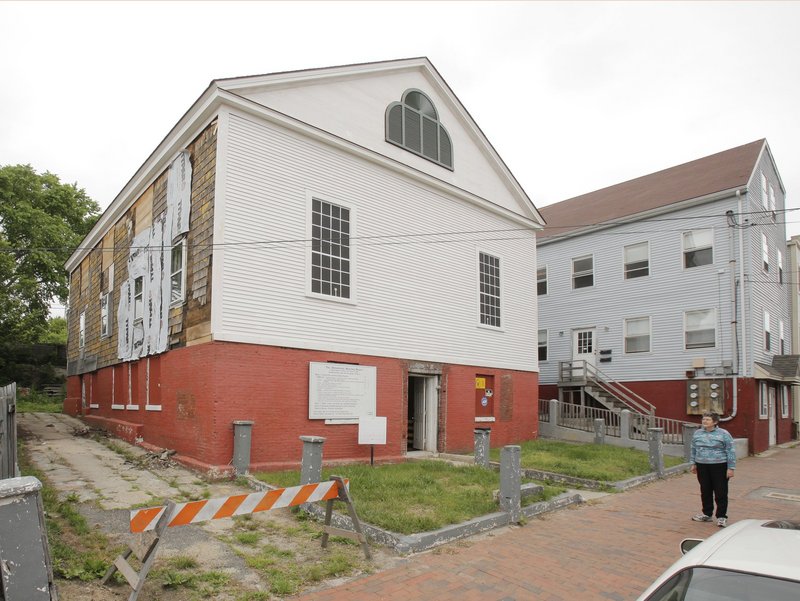AUBURN – They were citizens, but didn’t have the right to vote.
They were citizens, but for statistical purposes their kind was only counted as one-third of a person.
They were members, but they weren’t allowed to sit on the main floor; they had to sit in the back or up in the gallery, safely out of sight.
But all of that changed, and it is time for something else to change, too. Americans need to redefine in their hearts and minds what it means to be patriotic.
Traditionally those who are willing to make the ultimate sacrifice for their country and countrymen are considered the most patriotic. By worshipping them, the rest of us bask in the reflection of their sacrifice.
But the age of the patriotic war is coming to a close. The United States simply can’t afford to fight wars.
And besides, we know how to solve problems without fighting; peace is far more economical than war; and the risks of engaging in warfare today are far higher than they ever were a generation or two ago.
Without diminishing the respect we owe to those who protect us from external threats, it is time to equally recognize and lionize those who have expanded the scope and depth of democracy here at home.
Portland has a landmark that represents the epitome of what this country stands for: personal and community liberty. The Abyssinian Meetinghouse on Newbury Street is a repudiation of slavery, a monument to equality, and a testament to initiative, courage and endurance.
It represents the best of the heart and soul of Portland, the whole state of Maine, and the nation. It is an icon of authentic patriotism, i.e. patriotism of principle, versus patriotism of kind: “All men (people) are created equal “
In 1826 in Portland, tired of sitting in the galleries and the rear of their churches, Rueben Ruby and others, all African-Americans, established and built their own church.
They had to take the initiative because our society of their time would not. The church they built not only made them equal, if separate; it became an act of defiant courage.
The Abyssinian Meetinghouse was not only an education center for African-American children, it was a hub of the Underground Railroad, too.
The African-American citizens who established the Abyssinian Meetinghouse were patriots and soldiers. They demonstrated courage by enacting the ideals of this country — making them a reality in the face of significant opposition. They risked their lives and well-being assisting people running from slavery. They fought for the reality of the American dream here at home, not to impose it on others abroad.
Perhaps it would be more appropriate to call them “matriots” to distinguish their inward focused nurturance of our motherland from the outward focused “patriots” we have become accustomed to, but are less able to afford.
The Abyssinian Meetinghouse is a model of endurance. It has lasted through 185 years of frozen, snowy winters and broiling summer suns.
It has survived at least two fires; one on the inside, and one on the outside; and a stream running through its basement. It has survived repurposing, remodeling, and neglect.
Today it is coming together again as itself through the efforts of people with a deeply seated and soft spoken love of this country and its ideals. These people recognize the truth that the most important battles for liberty and democracy are fought here at home among our own people, not in foreign lands.
Walk the Portland Freedom Trail, and become familiar with its 16 marked sites. Get to know the scale and depth of the patriotism of our hometown heroes.
Visit the Abyssinian Meetinghouse and give generously to its restoration and development. You’ll be committing an act of monumental matriotism, and you won’t have to risk anyone’s life to do it.
It is time to strengthen and deepen our commitment to democracy here at home, and the restoration of the Abyssinian Meetinghouse is an exceptional opportunity to do so.
– Special to the Press Herald
Send questions/comments to the editors.



Success. Please wait for the page to reload. If the page does not reload within 5 seconds, please refresh the page.
Enter your email and password to access comments.
Hi, to comment on stories you must . This profile is in addition to your subscription and website login.
Already have a commenting profile? .
Invalid username/password.
Please check your email to confirm and complete your registration.
Only subscribers are eligible to post comments. Please subscribe or login first for digital access. Here’s why.
Use the form below to reset your password. When you've submitted your account email, we will send an email with a reset code.